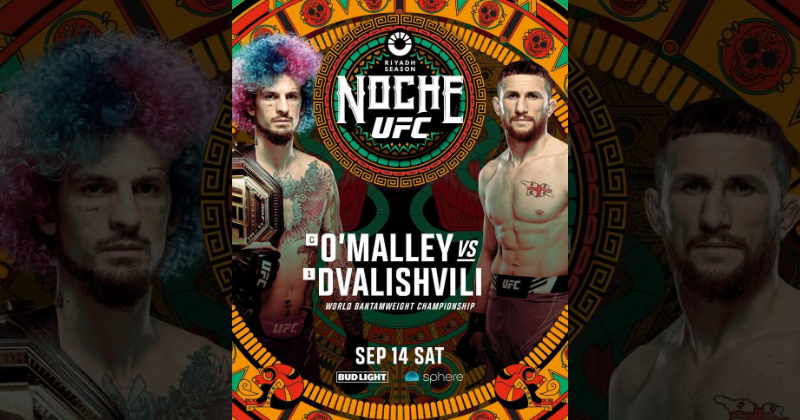Why Martial Arts is More Than Just Kicking and Punching
Why Martial Arts is More Than Just Kicking and Punching
Martial arts are often stereotyped as a combination of kicks, punches, and combat moves.
However, this perception only scratches the surface of what martial arts truly represent. At Ray Longo's school, martial arts are seen not just as a means of physical self-defense but as a comprehensive approach to personal development. Beyond the punches and kicks, martial arts encompass a journey of self-discovery, discipline, respect, and lifelong learning that impacts every aspect of a practitioner’s life.
The Holistic Approach of Martial Arts
Martial arts integrate mind, body, and spirit, creating a holistic approach to personal growth. This practice emphasizes a deep connection between these elements, teaching practitioners to harmonize their mental focus, physical actions, and spiritual awareness. Central to this is the philosophy of martial arts, which often draws from ancient traditions and wisdom, guiding students toward balance, humility, and inner peace.
Mental Discipline and Focus
One of the key benefits of martial arts is the development of mental discipline and focus. Training involves repetitive practice, often under challenging conditions, which helps sharpen concentration and mental resilience. Techniques such as meditation and mindfulness are embedded in martial arts, allowing practitioners to clear their minds, focus on the present moment, and achieve a state of mental clarity that extends beyond the dojo.
Building Confidence and Self-Esteem
Through martial arts, students face and overcome various challenges, from learning complex techniques to sparring with partners. These experiences build self-esteem and confidence, showing individuals that they are capable of much more than they initially believed. The progression through belts and ranks symbolizes personal growth, where each step forward represents mastery over one's fears and self-imposed limitations.
Emotional Regulation and Stress Relief
Martial arts provide a powerful outlet for managing emotions and reducing stress. The discipline teaches students to channel their energy positively, helping them maintain calm and composure even in stressful situations. Techniques such as controlled breathing and movement sequences are not just physical exercises; they are tools for emotional regulation, enabling students to handle life's ups and downs with grace and resilience.
Developing Respect and Humility
Respect and humility are core tenets of martial arts training. Practitioners learn to respect their instructors, peers, and even their opponents. This respect extends beyond the mat, influencing how they interact with others in their daily lives. Humility is cultivated through the recognition that there is always more to learn, regardless of one’s skill level, fostering a continuous desire for self-improvement.
Self-Defense as Empowerment, Not Violence
While martial arts teach self-defense, the emphasis is not on aggression but on empowerment and self-control. Students are trained to avoid confrontations when possible and to use their skills responsibly. This mindset shifts the focus from violence to protection, promoting peace and safety over conflict. Learning self-defense becomes a means of empowerment, instilling a sense of security and confidence in one's ability to protect oneself and others.
Health Benefits Beyond Physical Fitness
Martial arts contribute to overall health in ways that go beyond physical fitness. Regular practice improves cardiovascular health, enhances muscular strength, and boosts flexibility and coordination. Moreover, the emphasis on technique and proper form reduces the risk of injury, making it a sustainable exercise routine for people of all ages and fitness levels.
The Importance of Discipline and Routine
Success in martial arts requires dedication, discipline, and a consistent routine. This discipline extends into everyday life, where the habits formed in training can lead to improved time management, better work ethic, and a stronger sense of responsibility. Martial arts encourage setting goals and sticking to them, skills that are valuable in all areas of life.
Social Skills and Community Building
Training at a martial arts school is not a solitary pursuit; it is a community experience. Practitioners often form deep bonds with their peers, supporting each other through the highs and lows of their training journey. This sense of community provides a supportive environment where individuals can grow, learn, and thrive together. The camaraderie and friendships built in martial arts often last a lifetime.
Cultivating a Warrior’s Spirit
A core element of martial arts is the cultivation of a warrior’s spirit—a balance between courage and compassion. This spirit is about more than physical toughness; it involves mental fortitude, ethical behavior, and the strength to stand up for what is right. Stories of resilience and perseverance, often shared by instructors, inspire students to embody these values both in and out of the dojo.
Martial Arts for All Ages and Abilities
One of the most inclusive aspects of martial arts is its adaptability to suit individuals of all ages and abilities. Training can be tailored to meet the specific needs of children, adults, seniors, and those with disabilities. This inclusivity ensures that everyone can benefit from martial arts, whether they are seeking self-defense skills, fitness, or personal growth.
The Role of Instructors and Mentorship
Instructors play a pivotal role in martial arts, not just as teachers but as mentors who guide students on their personal journeys. A good instructor provides not only technical training but also moral support, encouragement, and wisdom that extends beyond the dojo. The mentorship provided in martial arts helps students navigate the challenges of life with confidence and integrity.
Martial Arts in Daily Life
The principles learned in martial arts extend into daily life, offering practical tools for managing challenges, achieving goals, and maintaining balance. Whether it’s applying the discipline of martial arts to work or using conflict resolution skills in personal relationships, the lessons learned on the mat are invaluable in everyday situations.
Frequently Asked Questions (FAQs)
1. What makes martial arts different from other sports?
Martial arts combine physical training with mental and emotional development, emphasizing discipline, respect, and self-control, making it a holistic approach to personal growth.
2. How can martial arts help with mental health?
Martial arts reduce stress, improve focus, and promote emotional regulation through techniques like meditation and controlled breathing, benefiting mental well-being.
3. Is martial arts suitable for children?
Yes, martial arts teach children valuable skills such as discipline, respect, and confidence while providing a fun and engaging way to stay active.
4. Can martial arts be practiced at any age?
Absolutely! Martial arts are adaptable for all ages and fitness levels, with programs tailored to meet the needs of different individuals.
5. How do martial arts promote non-violence?
Martial arts emphasize self-control, de-escalation, and respect for others, teaching students to avoid conflict and use their skills only as a last resort.
6. What should I look for in a martial arts school?
Look for a school that emphasizes a balanced approach to training, has qualified instructors, and fosters a positive, respectful environment.
Final Thoughts
Martial arts are far more than a series of kicks and punches; they are a journey of personal growth, empowerment, and lifelong learning. At Ray Longo's school, students are encouraged to embrace the full spectrum of martial arts, learning not only to defend themselves but also to cultivate a strong mind, body, and spirit. By understanding and appreciating the deeper aspects of martial arts, practitioners can unlock a path to a more fulfilling and balanced life.













